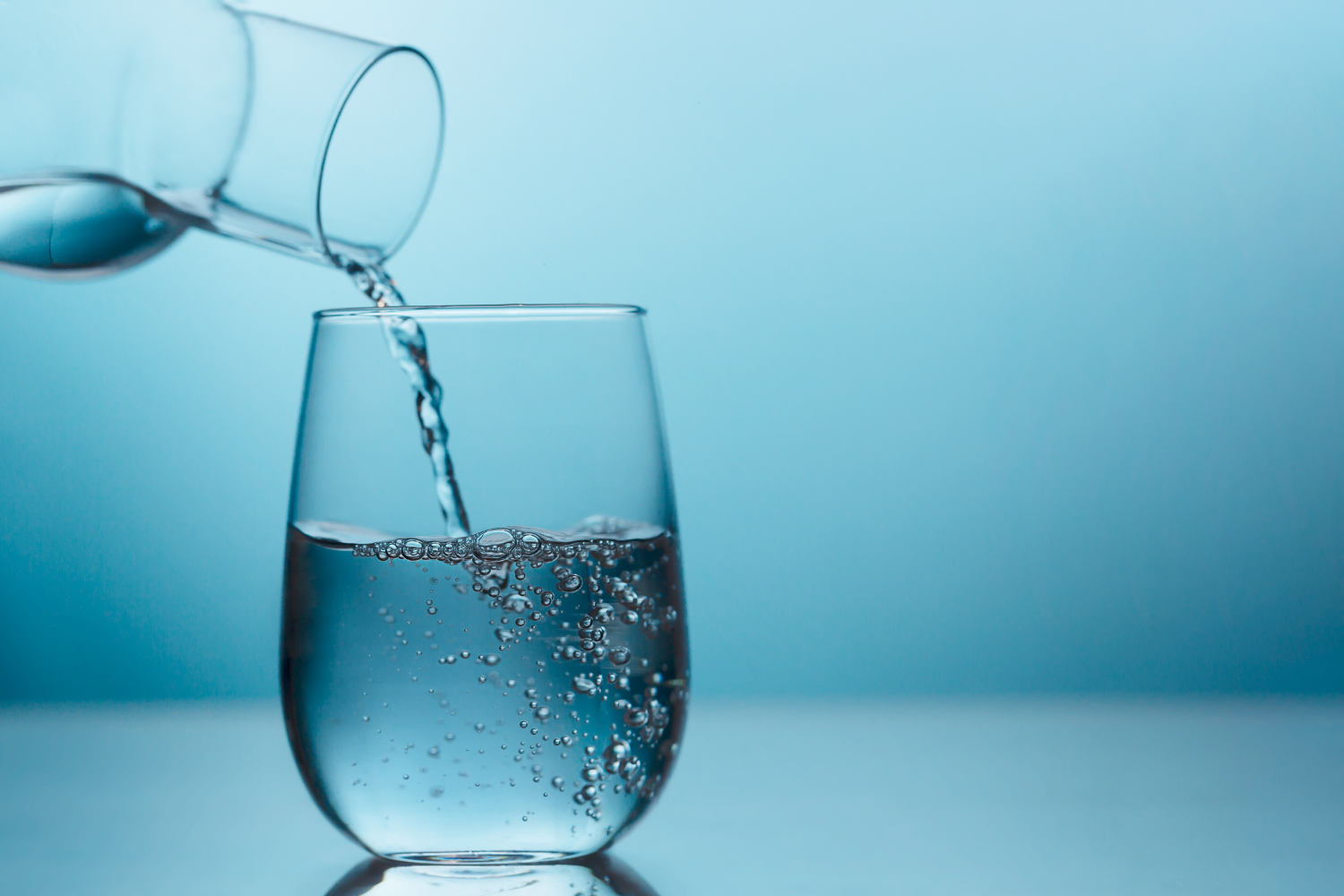Many people confuse trace minerals with electrolytes because both are often mentioned together in the context of hydration, nutrition, and overall well-being. While they share similarities, they play different roles in the body. Understanding the difference between trace minerals and electrolytes can help you make better choices when it comes to drinking water, choosing sports drinks, or using dietary supplements for proper hydration and optimal health.
Knowing how essential minerals and electrolytes support nerve function, muscle contractions, and many bodily functions makes it easier to maintain the proper balance of nutrients needed for overall health and better hydration.
What Are Trace Minerals and Why Does the Body Need Them?
Trace minerals are needed minerals that the body uses in very small amounts, yet they play a key role in many bodily functions. They help regulate metabolism, support the nervous system, and aid in producing enzymes that control energy and immunity. These minerals are also part of the body’s antioxidant defense, hormone balance, and other processes that keep the body working at its normal functioning.
Some of the most important trace minerals include zinc, copper, selenium, iodine, manganese, and iron. Even though they are not major minerals, they are still essential for good health, helping maintain strong bones, overall well-being, and the proper balance needed for many bodily fluids and daily activities.

What Are Electrolytes and How Do They Work?
Electrolytes are minerals with an electric charge that help control fluid balance, keep nerve impulse transmission steady, and support muscle function. Electrolytes help support proper muscle function and maintain fluid balance. Ensuring adequate intake of these essential minerals is important for supporting these functions, especially during intense physical activity.
The common electrolytes your body depends on every day include sodium, potassium, calcium, magnesium, and chloride. These major electrolytes are the ones most often found in bodily fluids, and they play a key role in nerve and muscle function, keeping pH balance steady, and supporting better hydration for overall health.

Are Trace Minerals the Same as Electrolytes?
People often ask, are trace minerals the same as electrolytes, and the answer is not simple. Some overlap exists, but they are not identical. Both are essential minerals that the body relies on for many bodily functions, yet they serve different purposes depending on how the body uses them.
Where They Overlap
Certain minerals, such as magnesium and potassium, act as both trace minerals and common electrolytes. They carry an electric charge in bodily fluids, which helps with nerve impulse transmission and muscle contractions, while also contributing to enzyme activity and other bodily functions that support overall well being.
Where They Differ
The main difference comes down to the amount needed and their key tasks. Major electrolytes like sodium chloride are required in larger amounts to keep fluid balance, pH balance, and blood volume steady. Trace minerals, on the other hand, are needed in very small amounts and are more involved in metabolism, hormone regulation, and building strong bones. This means they affect different systems but are equally important for optimal health.

When You Might Need More of One Than the Other
The need for extra trace minerals or electrolyte minerals depends on individual health conditions, activity levels, and dietary intake. Intense exercise, heavy sweating, or processed foods can change how much the body hold and may require adjusting intake through foods, citrus fruit, leafy greens, whole grains, dairy products, or dietary supplements.
Signs of Trace Mineral Deficiency
A balanced diet that includes a variety of foods is key to providing the necessary minerals for the body to function properly. When dietary intake is insufficient, a healthcare provider can help determine if supplementation is a suitable option.
-
Brittle hair
-
Weak immunity
Main Roles of Electrolytes
The electrolytes sodium, potassium, and calcium are vital for normal nerve and muscle function, as well as for heart rhythm. It is important to maintain these minerals through a balanced diet to support these functions.
How to Get Trace Minerals and Electrolytes from Food
Both trace minerals and essential electrolytes are available through everyday meals and drinks. Focusing on whole, nutrient-rich options helps keep the proper balance of minerals needed for many bodily functions, including nerve and muscle function, fluid balance, and overall health.
Best Food Sources of Trace Minerals
Foods rich in trace minerals contribute to a healthy diet that provides the nutrients needed to support the nervous system, metabolism, and strong bones. Adding a variety of these foods makes it easier to maintain optimal health.
-
Nuts
-
Seeds
-
Seafood
-
Whole grains
Top Foods and Drinks for Electrolytes
Electrolyte minerals are also found in everyday foods and drinks that help with proper hydration, acid-base balance, and heart function. These choices replenish bodily fluids and support muscle function after intense exercise.
-
Fruits
-
Vegetables
-
Dairy
-
Sports and electrolyte drinks

Do You Need Supplements for Trace Minerals or Electrolytes?
Food should be the main source of needed minerals, but mineral supplementation can help in certain situations. Knowing when to add a supplement depends on diet, activity level, and health needs.
When Supplements Make Sense
Supplements may be beneficial for athletes who lose electrolytes through heavy sweating, individuals following restrictive diets, or anyone managing specific health conditions that increase the risk of magnesium deficiency, electrolyte imbalance, or other nutritional gaps. In these cases, dietary supplements can help maintain overall well-being.
Choosing the Right Type of Supplement
Supplements are available in various forms, including powders, capsules, and drops. It’s important to look for products that contain common electrolytes like sodium, potassium, calcium, and magnesium, as well as support for other minerals.
LyteLine’s LyteShow electrolyte drops are one option designed to mix easily with drinking water, offering a simple way to support better hydration and maintain many bodily functions without relying too heavily on processed foods.
How Trace Minerals and Electrolytes Support Your Body
Trace minerals and electrolyte minerals share some overlap, yet they serve different purposes that keep the body running smoothly. A balanced diet with whole grains, leafy greens, citrus fruit, seafood, and dairy products can usually provide the much-needed minerals for overall health and well being.
For those who need extra support, especially during intense exercise or when dealing with processed foods, electrolyte drops like LyteShow can offer convenient options to help maintain the proper balance for better hydration and optimal health.
Frequently Asked Questions
Can a mineral be both a trace mineral and an electrolyte?
Yes, minerals like magnesium and potassium function as both.
Do trace mineral drops provide electrolytes?
Yes, many trace mineral drops include common electrolytes that support hydration.
What’s the fastest way to restore electrolytes naturally?
Eating fruits, vegetables, and drinking fluids with sodium and potassium helps quickly.
Are electrolyte drinks good for daily use?
They can be, but balance is important to avoid too much sodium or added sugars.
Which foods contain the most trace minerals?
Seafood, nuts, seeds, and whole grains are among the richest sources.
References
-
Hille B. (1978). Ionic channels in excitable membranes. Current problems and biophysical approaches. Biophysical journal, 22(2), 283–294. https://doi.org/10.1016/S0006-3495(78)85489-7
-
Kuo, I. Y., & Ehrlich, B. E. (2015). Signaling in muscle contraction. Cold Spring Harbor perspectives in biology, 7(2), a006023. https://doi.org/10.1101/cshperspect.a006023
-
Lin, P. H., Sermersheim, M., Li, H., Lee, P. H. U., Steinberg, S. M., & Ma, J. (2017). Zinc in Wound Healing Modulation. Nutrients, 10(1), 16. https://doi.org/10.3390/nu10010016
-
Moubarac, J. C., Batal, M., Louzada, M. L., Martinez Steele, E., & Monteiro, C. A. (2017). Consumption of ultra-processed foods predicts diet quality in Canada. Appetite, 108, 512–520. https://doi.org/10.1016/j.appet.2016.11.006
-
Rayman M. P. (2012). Selenium and human health. Lancet (London, England), 379(9822), 1256–1268. https://doi.org/10.1016/S0140-6736(11)61452-9
-
Rose, B.D. and Post, T.W., (2001) Clinical physiology of acid-base and electrolyte disorders. 5th Edition, McGraw-Hill, New York. https://www.scirp.org/reference/referencespapers?referenceid=434317



